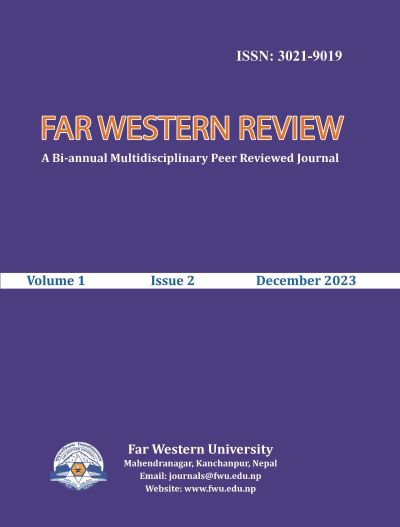The Gendered Implication of Declining Spring Sources in the Rangun Watershed Area
DOI:
https://doi.org/10.3126/fwr.v1i2.62134Keywords:
gender sensitive, Women, climate change, povertyAbstract
Rangun Khola watershed of Mahakali River Basin, located in Dadeldhura District in the mid[1]hill region of Nepal, serves as a model watershed for the region’s challenges associated with climate change. Springs are the lifeline for human survival and ecosystems in such watersheds. Data of spring discharge change of 1,122 springs in the region between 1998 and 2008 estimated using recall method showed that spring sources are drying up raising critical concern not only in terms of ecological wellbeing but also in terms of the community’s access to water. This study used data collected from focus group discussions and household survey to evaluate the gender implications of such dwindling spring sources in the watershed area. Results show that historically, women have been managing the majority of the family’s water demands. Due to declining spring water sources, women are becoming more time impoverished due to the lengthier time required for water collection, which has an effect on their own and their family’ well-being. Limited participation from women, the population most directly affected by climate change was found in local adaptation planning procedures. This study adds evidence of the gendered effects of climate change and advocates for the promotion of gender-responsive local adaptation planning in the water management sector.
Downloads
Downloads
Published
How to Cite
Issue
Section
License

This work is licensed under a Creative Commons Attribution-NonCommercial 4.0 International License.
CC BY-NC: This license allows reusers to distribute, remix, adapt, and build upon the material in any medium or format for noncommercial purposes only, and only so long as attribution is given to the creator.




